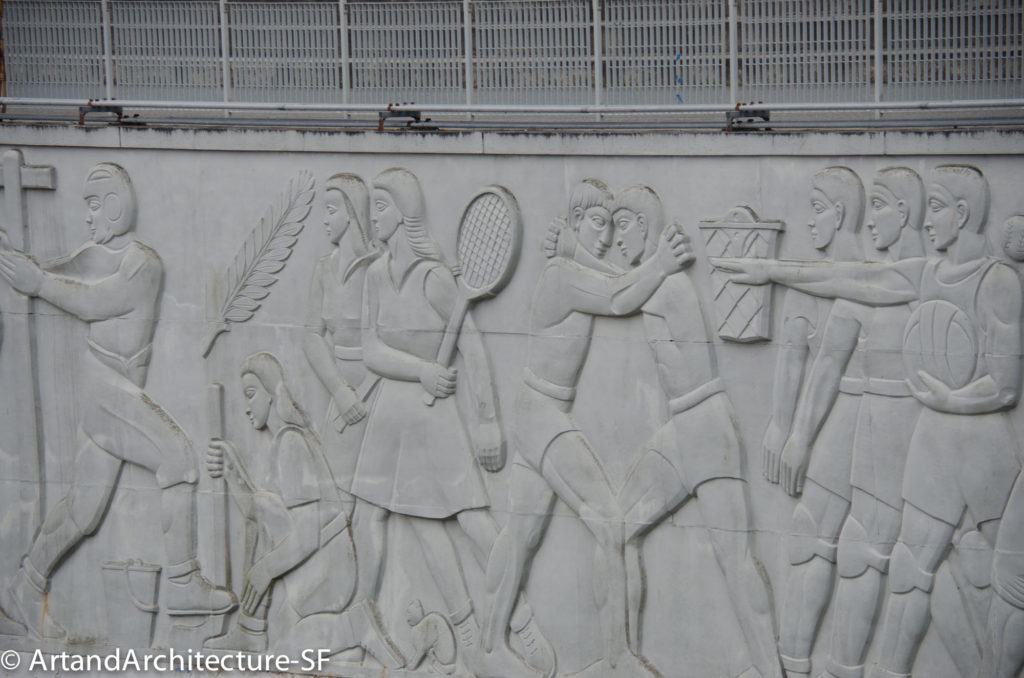George Washington High School
600 32nd Avenue
Football Field
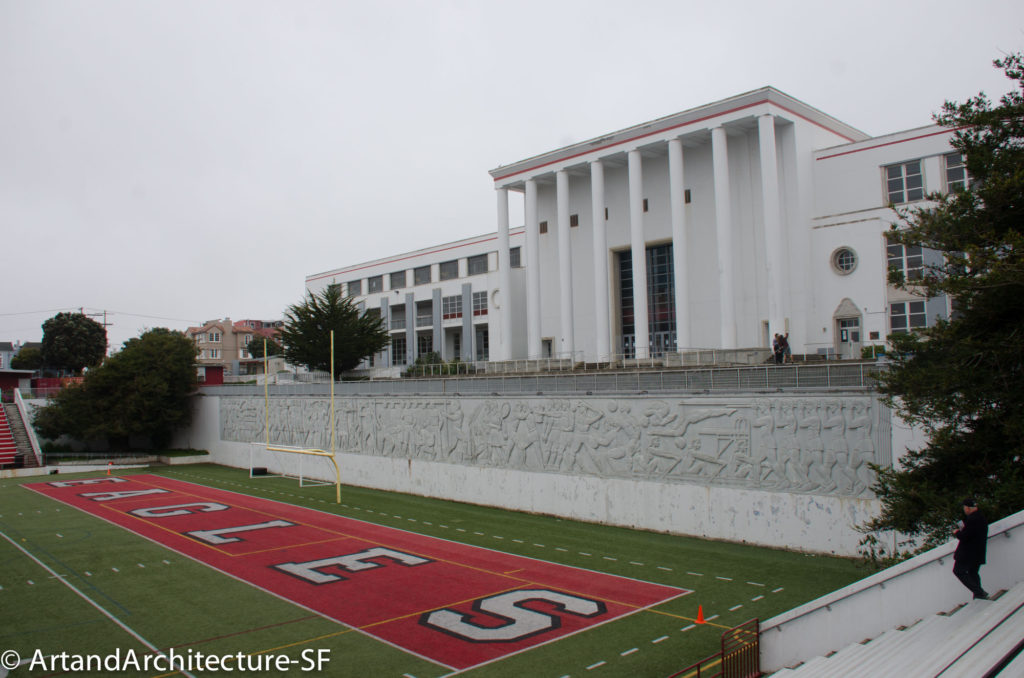
Originally awarded to San Francisco artist Beniamino Bufano, the commission for this work went to Sargent Johnson after Bufano was fired by the WPA when he proposed to use the Marxist labor leader Harry Bridges as a model in his iteration for the frieze.
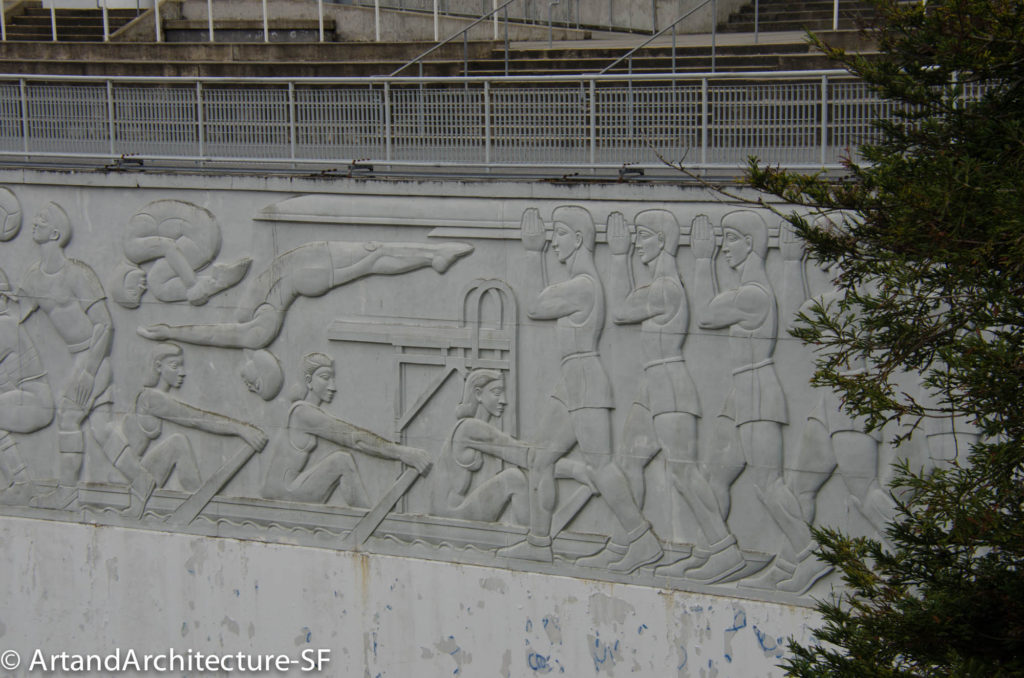
This 1942 Federal Arts Project gave Johnson the chance that he needed to express himself in new materials, and allowed him to work on a massive scale in well-equipped studios.
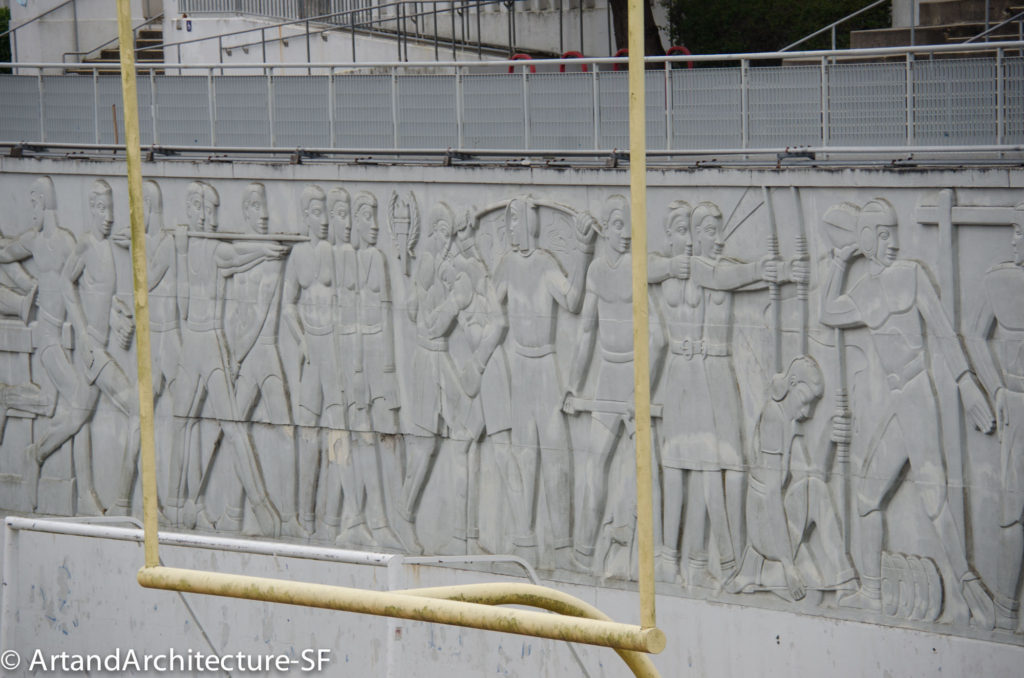 This giant sculpture was done in 3 by 4-foot panels so that it could be transferred from Johnson’s studio to the school.
This giant sculpture was done in 3 by 4-foot panels so that it could be transferred from Johnson’s studio to the school.
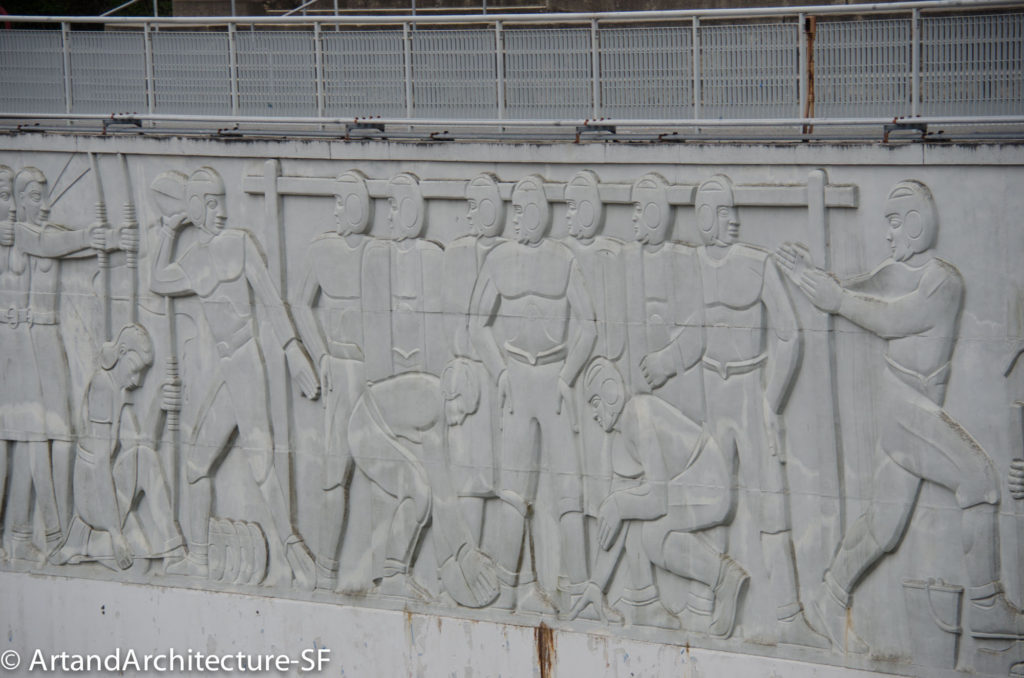 There are Olympic rings between the female golfers and the relay racer. The frieze is framed by golf clubs on the east end and oars from crew races on the west.
There are Olympic rings between the female golfers and the relay racer. The frieze is framed by golf clubs on the east end and oars from crew races on the west.
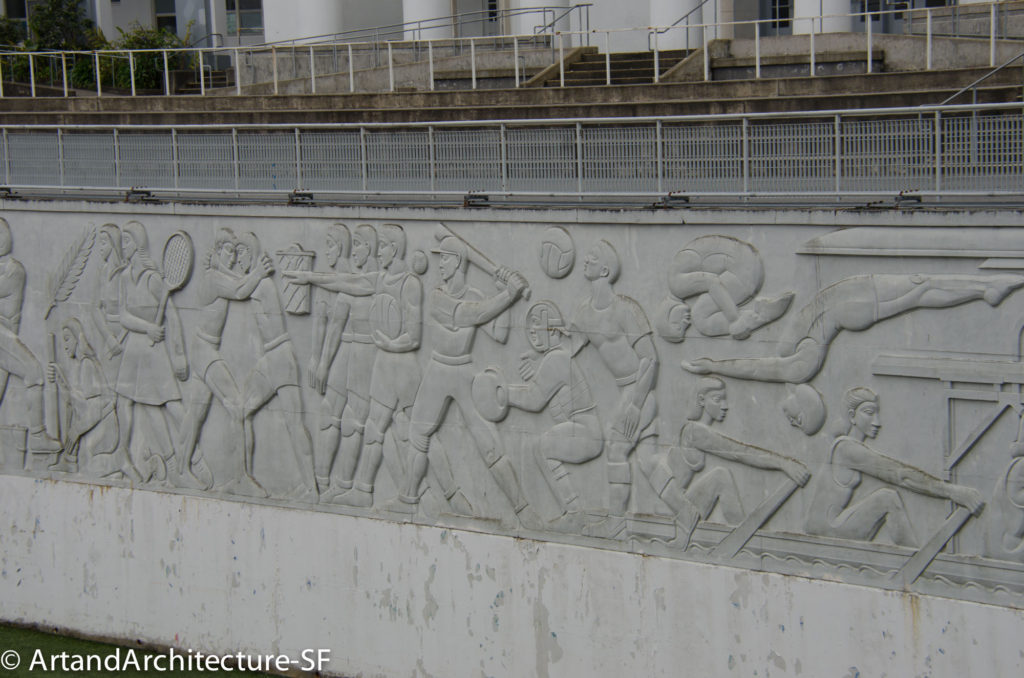
Sargent Claude Johnson (October 7, 1888 – October 10, 1967) was one of the first African-American artists working in California to achieve a national reputation. He was known for Abstract Figurative and Early Modern styles. He was a painter, potter, ceramicist, printmaker, graphic artist, sculptor, and carver. He worked with a variety of media, including ceramics, clay, oil, stone, terra-cotta, watercolor, and wood. Sometimes considered a Harlem Renaissance artist, Sargent Johnson spent his career in the Bay Area. Johnson moved to San Francisco in 1915 to study painting, drawing, and his primary medium, sculpture. He was committed from early on to using modern aesthetics to create positive representations of African Americans. Like many of his contemporaries, he studied African carvings. For Johnson, however, the purpose of these formal borrowings was to suggest racial continuity and dignity. In the 1930s, while working on public art projects for the New Deal, he began to expand his range of subjects, taking on aspects of abstraction as well as Mexican muralism.
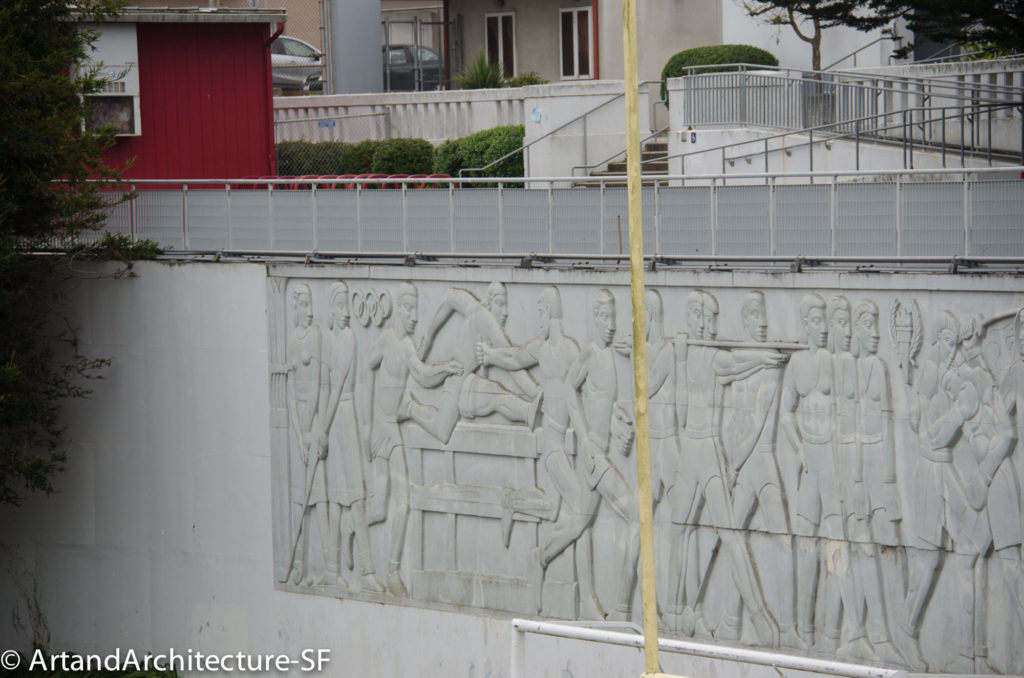
*